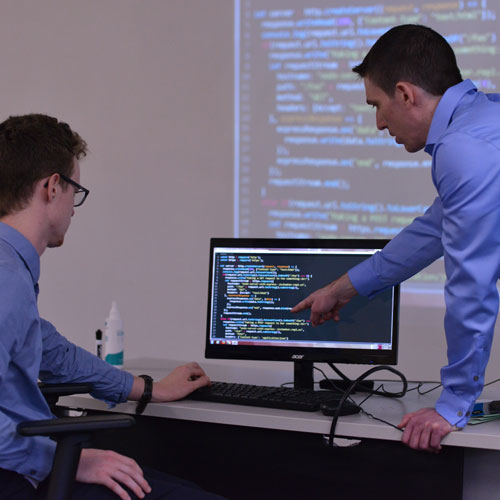Math

“The queen of sciences”
The well-known 19th century German mathematician Carl Friedrich Gauss once called mathematics “the queen of sciences” because of its way of uncovering the nature of the universe. From understanding the stars in the sky to using our mobile devices, mathematics is in everything that we do. At Molloy, we offer exceptional opportunities for study and research in mathematics at the undergraduate level. Our faculty will steer you through a wide range of courses to provide a solid foundation of mathematical thinking for a successful career.
Mathematical concepts studied
Students in the Math program will enroll in a variety of core classes, including:
-
Calculus
From single variable to multivariable functions, students will learn everything about derivatives and integrals.
-
Discrete Mathematics
Students will gain an understanding of structures that are considered to be countable or discrete. Structures include sets, logical statements, and graph theory. This is a transition course that introduces students to mathematical reasoning (proof).
-
Linear Algebra
A branch of mathematics that uses matrices to study vector spaces and the linear transformations between them. Students will gain a deeper understanding of geometric concepts such as Euclidean space and its operations.
-
Ring Theory
An upper-level course that focuses on rings, which are algebraic structures with two operations that satisfy a set of properties. Students will explore how integers and polynomials are examples of rings and the properties that they hold.
-
Real Analysis
A proof-based course, students are exposed to the properties of real numbers, sequences and real valued function, and its impact to Calculus through the introduction of the notion of a limit.
Math majors develop analytical skills and attitudes that are highly valued by employers. A degree in mathematics can lead to successful careers in academia, analyst, actuary, or statistician. So if you like the challenge in solving problems, then this is the right major to choose.